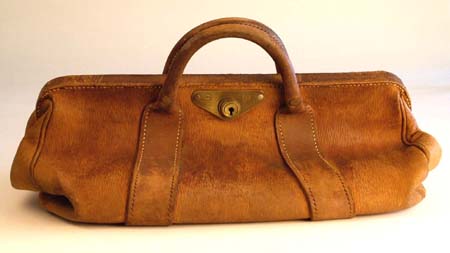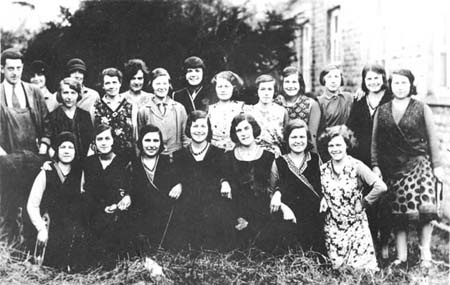

Pay and conditionsIn 1677 the average weekly wages for a family working from home in the weaving trade were (the roughly equivalent values for 2006 are given in brackets):
This came to a total of £1 18s 6d for an entire family working, which is the equivalent of about £225 in 2006 [1]. Unlike most other trades in the woollen mills the weavers were paid according to how much cloth they produced and not the amount of hours that they worked. Richard Osborne was one of the weavers who gave evidence to the Commission and he noted the effect this had on his fellow weavers: 'It would be better if the weavers were... restricted to regular working hours, because they would earn more regular wages and it would be better for their families. Some of them come sauntering in on Monday towards the middle of the day, some get to work on a Tuesday, and some do not work the latter end of Saturday... the hardest work is on a Thursday or Friday' [3].If any weaver was known to be absent from his loom because he had been out drinking, the punishment was to confiscate his shuttle for a couple of days, this way he could not earn his living and was ridiculed by his colleagues. Having your shuttle taken away was considered to be a disgrace among the men [4]. Richard Stiff was another blanket worker who gave evidence to the 1838 enquiry; he had also worked as a weaver in Dursley, Gloucestershire. He said: 'The masters here show the kindest feelings to their men, and the men the same to their masters... this was never the case in Gloucestershire. They cannot have that feeling when the masters are so careless about the working-man; there is no affection between them, but there is in Witney. The masters here come to the factories and look after business; they do not give authority to any foreman to usurp power over the labouring man. When a weaver goes before a master in Gloucestershire it is bad as if he were going before a judge.'Even though Richard was offered more pay outside the area he preferred to stay in Witney at a lower wage because of the regular work and better treatment [5]. Over a period of about 100 years weaving in the blanket mills gradually changed from a male dominated trade to a female one. By 1950 nearly all the weavers at Early's and the other mills were women and girls, by which time they were working on power looms but were still paid on the traditional system of piecework. At Early's there was also an informal system of managing payments known as 'live horse and dead horse'; this was an agreement between the weaving shed foreman and the wages clerk which allowed the weaver to be paid for either blankets she had not yet woven or else save up her take-home pay into the following week.  Early's wages bag. For many years the weekly pay was brought from the bank in this bag by Ted Warner on his bicycle - with no security!
|
|
| References [1] Honey 1998 [2] Clements unpub.: p20 [3] Plummer and Early 1969: p77 [4] Plummer and Early 1969: p80 [5] Plummer and Early 1969: p79 [6] personal communication: Brian Crawford [7] Townley 2004: p99 |
Listen: Download audio file Alan Pullin, a 'weft man' for Smith and Philips' blanket company (1964-1974) describes the start of his working day (114Kb). Download audio file Alan Pullin describes the transport that was provided from the surrounding villages in to the Witney mills (115Kb). Download audio file A former worker from Smith's of Witney recalls how he was paid when he first started at the mill (85Kb). Download audio file Mike French, former engineer to Early's blanket manufacturers, describes that his working day was sometimes very long (113Kb). |


